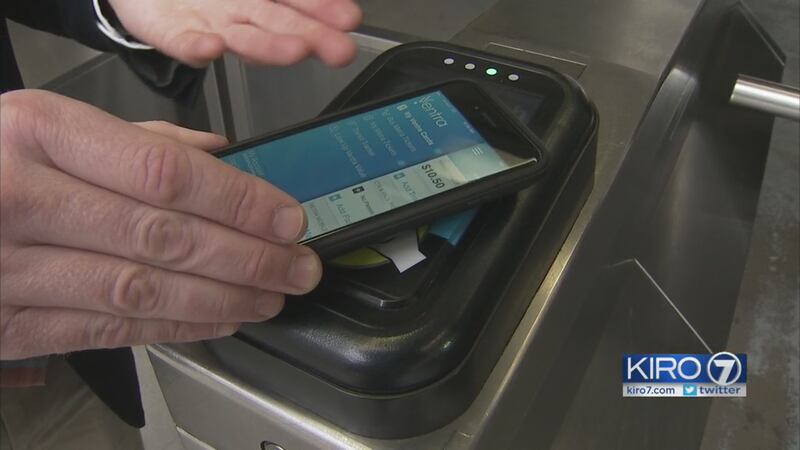Chicago is a city on the go.
As commuters rush home from work, they pay for trips on buses, commuter rail and the famous L with Ventra cards.
They look like ORCA cards in Seattle, but there's a big difference.
"It's great, I love it," said Paul Purewall, about the new Ventra app as he stood waiting for a bus. "It works pretty well, you can reload your card."
That's something you won't hear from a Seattle commuter.
For starters, there is no ORCA app.
To add value to an ORCA account, you use a machine or go online, type in your credit card and then wait 24 to 48 hours for the value to show up.
That's long enough to worry if it will be there for your morning bus trip.
In Chicago, that mundane but all-important task happens in seconds, using the Ventra app.
%
%
The app launched five months ago.
440,000 people have downloaded it.
"It provides on-the-go account management for every Ventra user. We like to say it puts a Ventra vending machine in everybody's pocket," said Michael Gwinn, of the Chicago Transit Authority.
The app give arrival times and even turns into a ticket on suburban trains.
"It was really simple, fairly easy to use," Chicago commuter Logan Porter said of his Ventra app experience.
So, why isn't ORCA, which works on seven Puget Sound area transit agencies, as high tech as Ventra?
"Why don't we have it here? These are incredibly complex systems and any time you're dealing with seven different agencies coordinating for one product, it just takes time to get it right," said Bruce Gray, of Sound Transit.
Sound Transit's contract with the current vendor runs through 2019, which means commuters are stuck with a comparatively clunky system another five or six years.
%
%
"What we're looking at now is what the next generation of ORCA is going to be," Gray said.
That process is just beginning.
ORCA does work -- 450,000 people used it last month.
But the system, which was designed starting in 2003 and launched in 2009, is not nimble because account values are stored on the cards rather than in the cloud.
And ORCA does not have an open payment standard like Ventra, which allows Chicago commuters to get through turnstiles using Apple Pay or Google Wallet.
Setting up payments directly from the Ventra app is complicated and hasn't launched yet.
When it does, it will bring another level of convenience that Seattle commuters can envy.
When the ORCA system is finally upgraded, experts said it will need to include ways to pay for other modes of transportation like car shares and Uber.
The Shared Use Mobility Center, based in Chicago, envisions commuters being able to use a single card or app to not only pay for trips on transit, but also for Car2Go rentals, Lyft and Uber rides, and bike share trips.
The idea is to help people with the first or last leg of their trip and provide seamless options with a single pay system.
"A lot of car dependence is that people are worried they won't be able to get to work on time or be able to pick up their kids so there need to be enough backup systems so you feel a certain level of comfort," said Sharon Feigon, of the Shared Use Mobility Center.
Chicago's Ventra system has not yet integrated car or bike shares.
But transit officials said they'd like to, and the open data standard could make it possible.
Cox Media Group







